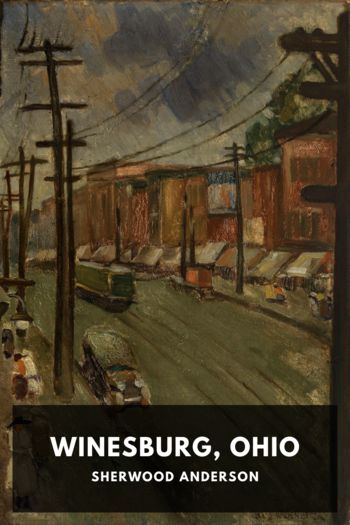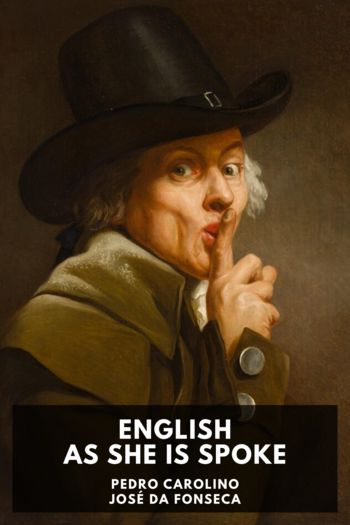Winesburg, Ohio, Sherwood Anderson [web based ebook reader txt] 📗

- Author: Sherwood Anderson
Book online «Winesburg, Ohio, Sherwood Anderson [web based ebook reader txt] 📗». Author Sherwood Anderson
One night in January when there was a new moon George Willard, who was in Ed Handby’s mind the only obstacle to his getting Belle Carpenter, went for a walk. Early that evening George went into Ransom Surbeck’s pool room with Seth Richmond and Art Wilson, son of the town butcher. Seth Richmond stood with his back against the wall and remained silent, but George Willard talked. The pool room was filled with Winesburg boys and they talked of women. The young reporter got into that vein. He said that women should look out for themselves, that the fellow who went out with a girl was not responsible for what happened. As he talked he looked about, eager for attention. He held the floor for five minutes and then Art Wilson began to talk. Art was learning the barber’s trade in Cal Prouse’s shop and already began to consider himself an authority in such matters as baseball, horse racing, drinking, and going about with women. He began to tell of a night when he with two men from Winesburg went into a house of prostitution at the county seat. The butcher’s son held a cigar in the side of his mouth and as he talked spat on the floor. “The women in the place couldn’t embarrass me although they tried hard enough,” he boasted. “One of the girls in the house tried to get fresh, but I fooled her. As soon as she began to talk I went and sat in her lap. Everyone in the room laughed when I kissed her. I taught her to let me alone.”
George Willard went out of the pool room and into Main Street. For days the weather had been bitter cold with a high wind blowing down on the town from Lake Erie, eighteen miles to the north, but on that night the wind had died away and a new moon made the night unusually lovely. Without thinking where he was going or what he wanted to do, George went out of Main Street and began walking in dimly lighted streets filled with frame houses.
Out of doors under the black sky filled with stars he forgot his companions of the pool room. Because it was dark and he was alone he began to talk aloud. In a spirit of play he reeled along the street imitating a drunken man and then imagined himself a soldier clad in shining boots that reached to the knees and wearing a sword that jingled as he walked. As a soldier he pictured himself as an inspector, passing before a long line of men who stood at attention. He began to examine the accoutrements of the men. Before a tree he stopped and began to scold. “Your pack is not in order,” he said sharply. “How many times will I have to speak of this matter? Everything must be in order here. We have a difficult task before us and no difficult task can be done without order.”
Hypnotized by his own words, the young man stumbled along the board sidewalk saying more words. “There is a law for armies and for men too,” he muttered, lost in reflection. “The law begins with little things and spreads out until it covers everything. In every little thing there must be order, in the place where men work, in their clothes, in their thoughts. I myself must be orderly. I must learn that law. I must get myself into touch with something orderly and big that swings through the night like a star. In my little way I must begin to learn something, to give and swing and work with life, with the law.”
George Willard stopped by a picket fence near a street lamp and his body began to tremble. He had never before thought such thoughts as had just come into his head and he wondered where they had come from. For the moment it seemed to him that some voice outside of himself had been talking as he walked. He was amazed and delighted with his own mind and when he walked on again spoke of the matter with fervor. “To come out of Ransom Surbeck’s pool room and think things like that,” he whispered. “It is better to be alone. If I talked like Art Wilson the boys would understand me but they wouldn’t understand what I’ve been thinking down here.”
In Winesburg, as in all Ohio towns of twenty years ago, there was a section in which lived day laborers. As the time of factories had not yet come, the laborers worked in the fields or were section hands on the railroads. They worked twelve hours a day and received one dollar for the long day of toil. The houses in which they lived were small cheaply constructed wooden affairs with a garden at the back. The more comfortable among them kept cows and perhaps a pig, housed in a little





Comments (0)